Fritextsökning
Artiklar per år
Innehållstyper
-

Uncertainty about the government’s life science work
The government’s national coordinator for life science, Jenni Nordborg, left her position almost four months ago. No one has yet succeeded her, and now questions are being raised both about the government’s plans for the office and the Swedish life science strategy.
-

Pfizer’s record year – topped the $100 billion mark
In 2022 Pfizer, as the first pharmaceutical company in history, reached an annual revenue of more than 100 billion dollars, thereby surpassing Johnson & Johnson as the industry’s top selling business.
-

He got inside the head of Sweden’s vaccine hunter
The hunt for the COVID-19 vaccine is the theme of the new book Vaccinjägaren (The Vaccine Hunter). It tells the story of Richard Bergström’s mission as Sweden’s national vaccine coordinator and the scheming that went on behind the scenes in Europe
-
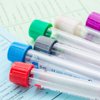
New diagnostic rules raise concerns
In a panel discussion, several voices from academia and the industry expressed concerns about the transition to the new regulatory framework for in-vitro diagnostics (IVDR). They argue that it may create significant differences between regions
-

New drug alert in the US: Rise in overdoses linked to the use of drugs for animals
A combination of the synthetic drugs fentanyl and xylazine, an animal tranquilizer, has been labelled a “growing threat” by the White House due to its role in the ongoing opioid crisis in the US.
-

Sov som en björn – och undvik blodproppar
Minskning av ett visst blodplättsprotein tycks ha en nyckelroll när det gäller att förhindra blodproppar, enligt forskning vid bland annat Universitetssjukhuset Örebro. Och för den nya kunskapen kan vi tacka en av naturens största sjusovare: björnen.
-
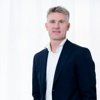
Guard avbryter fas II-studie halvvägs efter negativt utlåtande
Biotech-bolaget Guard Therapeutics avbryter en fas II-studie av sin främsta läkemedelkandidat. Orsaken är att förutsättningarna att nå studiens huvudmål bedöms vara låga.
-

Elypta awarded one million USD from the Star Trek creator’s foundation
Swedish company Elypta, which develops methods for early cancer detection, has been awarded one million USD from an unexpected source: a foundation set up in memory of the creator of Star Trek.
-

Diamyd får tung finansiering för fortsatt diabetesstudie
Forskningsbolaget Diamyd Medical har ingått ett fyraårigt samarbete med JDRF, en internationell organisation för forskning och opinionsbildning inom typ 1-diabetes.
-

Elypta får en miljon dollar – av Star Trek-skaparens stiftelse
Svenska Elypta, som utvecklar metoder för tidig upptäckt av cancer, har tilldelats en miljon dollar från oväntat håll: en stiftelse som grundats till minne av skaparen till Star Trek.
-
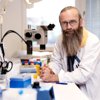
Conference on Alzheimer’s reveals several advances in the field
In Gothenburg, Sweden, researchers and pharmaceutical companies from all over the world gathered to discuss one specific issue – neurological diseases. Life Science Sweden has talked to some of those that attended the conference.
-

The impact of the recession on the Swedish medtech sector
We need health care regardless of whether the economy is good or bad, but the current recession also affects the Medtech sector.
-

He will be the new chair of Medicon Valley Alliance
Niels Abel Bonde is the nomination committee’s proposal and the most likely person to take over as the new chairman of the Swedish-Danish life science cluster organisation Medicon Valley Alliance (MVA).
-

Patent-tvist i USA:s högsta domstol kan få stor påverkan
Ett ovanligt patentfall som tagit sig hela vägen till USA:s högsta domstol kan få omfattande konsekvenser för läkemedelspriser och medicinutveckling, rapporterar Nature.
-
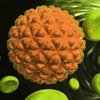
Protein hjälper cancerceller att utveckla resistens mot cytostatika
Olika cytostatika attackerar cancerceller på olika sätt, med syftet att de ska dö. Ett sätt är att angripa cancercellernas DNA.
-

Life science-företag på lista över bästa arbetsplatserna
Flera företag inom life science-området placerar sig på 2023 års lista över Sveriges bästa arbetsplatser, som sammanställts av undersökningsföretaget Great place to work.
-

KI’s new President: “We need to work closer together”
A closer link between research and education and a stronger “we-feeling” are aims that Annika Östman Wernerson sets out to achieve as the new President of Karolinska Institutet. She will not give up her research entirely though. “I think it’s crucial
-

Vinnova is going to establish a new innovation cluster
Vinnova, the Swedish Agency for Innovation Systems, has been commissioned by the government to establish a national innovation cluster for advanced medicines.
-

Fem saker du måste veta om AI 2023
Är ditt jobb hotat av maskininlärning? Varför är det viktigt att hänga med i utvecklingen inom artificiell intelligens? Här får du svar på vad du behöver veta om AI just nu.
-

Meeting with focus on South Korea and Japan’s life sciences
Large, complex and exciting – this is how Britta Stenson, Business Sweden, describes the life science markets of Japan and South Korea, which took centre stage during a webcast seminar.
-

USA-bolag investerar 270 miljoner i Umeåbaserat biotechföretag
Amerikanska Cambrian Bio investerar 270 miljoner kronor och blir majoritetsägare i Umeåbolaget Betagenon, som utvecklar ett läkemedel mot olika livsstils- och ålderssjukdomar. I samband med affären byter bolaget namn till Amplifier Therapeutics.
-
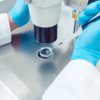
Major advances in IVF labs in the last few decades
Since the introduction of in vitro fertilisation several decades ago, many developments have been made in the field, and the main part of that development has taken place in the lab.
-

Keanu Reeves ger namn åt molekyler som är effektiva mot svampsjukdomar
Tyska forskare presenterar svampdödande molekyler, keanumyciner, som är verksamma mot bland annat Candida albicans – en svamp som kan angripa människa.
-

“I am driven by the desire to develop a product that can be sold worldwide”
Ranked number one in the world by the WHO in diarrhoea research and soon in phase III studies for its vaccine candidate – Scandinavian Biopharma is rushing forward in the pursuit of the world’s first ETEC vaccine. Meet the company’s CEO Björn Sjöstrand.